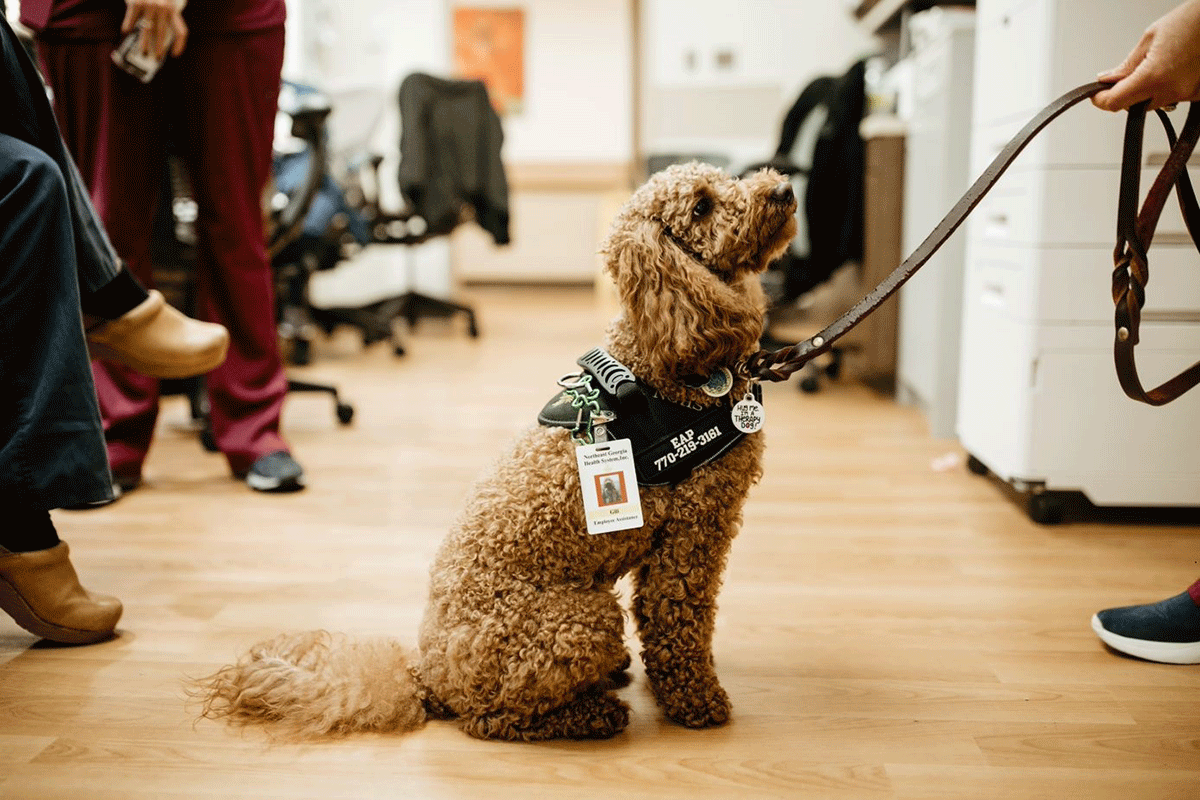While individuals engage in modern life activities, fear and sadness appear as allies, so people look for comfort. A therapy dog is a realistic friend whose presence has been scientifically proven useful for reducing anxiety and depression. Therapy dogs support family members most significantly when it comes to anxiety and depression due to their constant supply of comfort. Therapy dogs have undergone special training to comfort people in hospitals, nursery homes, school-going children, and others in troubled areas.
Here is how therapy dogs reduce anxiety and depression in family members:
The Science of Touch
Touch has been seen to activate the release of the bonding hormone, oxytocin, sometimes called the ‘love hormone.” Touch reduces stress and anxiety since it is known to have a calming effect. Moreover, taking time to stroke a dog results in a decreased cortisol level, the hormone responsible for moderating the body’s physiological response to stress.
Routine and Responsibility
One of the joys of being a pet owner is the structure that pet care brings into one’s life, which is always helpful to a person who is depressed. Simple errands of feeding, taking the dog for a walk, or brushing provide a routine to overcome lethargy and inability to engage oneself in productive work, which is evident in depressive episodes. Offering people a reason to get up in the morning will also maintain a similar flow to the day and promote well-being.
Facilitating Social Interactions
They also ease social interactions for the people, thereby becoming social facilitators for people to interact socially with other people. Closeness with neighbors and encounters with other dog owners are inevitable when one takes out a therapy dog for a walk, and that is how social interaction flows, and chances of developing anxiety are eliminated. These interactions may also help improve the kinds of social skills that are needed when coping with mental health disorders, as well as help foster new connections and support networks that are undoubtedly helpful to anyone who may deal with issues regarding their mental health.
You should consider our latest course for those interested in training a therapy or assistance dog for themselves or a family member. It is highly informative and offers easy-to-watch micro-lessons describing the process of training your puppy or adult dog from the easiest and the most obvious forms of social interaction that involve a few elementary forms of etiquette up to and including the comprehensive systems of interventions that are designed to assist you in solving specific problems that you might encounter in your daily life.
To help you move on towards our Public Access Test readiness, our course provides signposting to specialist professionals and organisations if needed. Get your first lesson for your family therapy dogs training. This is our special $20 FIRST-TIME-OFFER: if you enter the code word familydog20 when you check out, you can get a 20% discount on the one-time fee of 150 pounds.
In conclusion, therapy dogs are a great source of help, especially given that the majority of people today suffer from some level of anxiety and or depression. Being able to hug a pet without judgment, setting a schedule, promoting exercise, and arranging playdates with other pets are among the qualities that make animals precious friends in the fight for mental recovery. Children not only receive personal benefits from therapy dogs, but their entire family, including members not directly interacting with the dog, benefit from the presence of therapy dogs.

